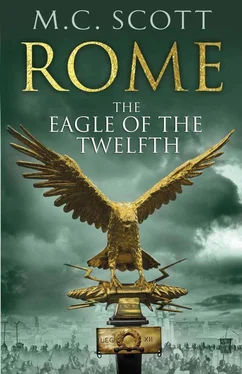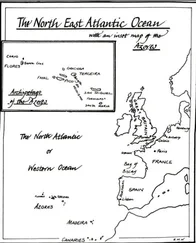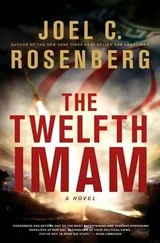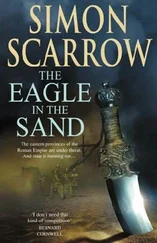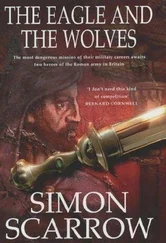M. Scott - The Eagle of the Twelfth
Здесь есть возможность читать онлайн «M. Scott - The Eagle of the Twelfth» весь текст электронной книги совершенно бесплатно (целиком полную версию без сокращений). В некоторых случаях можно слушать аудио, скачать через торрент в формате fb2 и присутствует краткое содержание. Жанр: Исторические приключения, на английском языке. Описание произведения, (предисловие) а так же отзывы посетителей доступны на портале библиотеки ЛибКат.
- Название:The Eagle of the Twelfth
- Автор:
- Жанр:
- Год:неизвестен
- ISBN:нет данных
- Рейтинг книги:5 / 5. Голосов: 1
-
Избранное:Добавить в избранное
- Отзывы:
-
Ваша оценка:
- 100
- 1
- 2
- 3
- 4
- 5
The Eagle of the Twelfth: краткое содержание, описание и аннотация
Предлагаем к чтению аннотацию, описание, краткое содержание или предисловие (зависит от того, что написал сам автор книги «The Eagle of the Twelfth»). Если вы не нашли необходимую информацию о книге — напишите в комментариях, мы постараемся отыскать её.
The Eagle of the Twelfth — читать онлайн бесплатно полную книгу (весь текст) целиком
Ниже представлен текст книги, разбитый по страницам. Система сохранения места последней прочитанной страницы, позволяет с удобством читать онлайн бесплатно книгу «The Eagle of the Twelfth», без необходимости каждый раз заново искать на чём Вы остановились. Поставьте закладку, и сможете в любой момент перейти на страницу, на которой закончили чтение.
Интервал:
Закладка:
Make sure you’re dead… dead… dead…
I felt sick. I felt the rock shudder to the hammer of my heart. I heard the slow hiss of our breath and thought it a wonder that the men in the neighbouring cavern didn’t smell the waves of sour battle-sweat that flushed my armpits and rolled in wet lines down my limbs.
Horgias was no better. However often we had waited before battle, it had been in the open, with sword and shield to hand. I bruised my palm, so tightly did I hold the knife, and rehearsed the track it would have to take to my own heart if I needed urgently to die, but there was no comfort in that, and nothing of the battle-rage that buoyed us up before a fight.
I felt the shudder of Horgias’ breath and put my hand on the small of his back, and felt his foot creep back to press against my elbow, and in that small touch was more intimacy, more closeness, more sharing of souls than I had known since the battle at Lizard Pass.
I loved him then, and would have said so, perhaps, and cost us both our lives, had not there been a movement in the outer cave whither Pantera had gone: a whisper; a foot scuffed against stone; a man’s voice that cursed softly in Greek, and another that rebuked him, less softly, in heavy Thracian.
In the Hebrews’ cavern, the crackle of talk, which had been animated and sharp, fell to shocked silence. The air grew tight with a dozen breaths held and one stifled cry of joyful vindication, fiercely hushed.
In the outer cave, where Pantera wrought his subterfuge, Nicodemus’ rope scrapedacross the rocky lip over which we had all climbed and a third voice cried out in Latin, rising with fear at the end. To my ears, it sounded foreign, but I have no doubt that the Hebrews believed they had heard me.
It was more than enough: sixteen men hurtled out of their cavern, heedless of the noise they made, the lamps they kicked over in their haste, the Eagle they left behind.
Their passing caused a sudden lift in the sullen air, flavoured it with garlic and citrus and sweat. The slap of their bare feet sounded like a full cavalry ride and their voices, raised in rage and rejoicing, were those of any hunt on the closing trail of their quarry. They passed us in a mass, and were gone.
‘Now!’ I pushed on Horgias’ back and we writhed free of our hiding place, turned away from the havoc Pantera had brought on himself, and sprinted ahead into the Hebrews’ wide, airy, lamplit cavern — where we stopped, stunned by the vision that lay before us.
The cavern was vast; easily as big as the biggest audience room in the governor’s palace in Antioch. An opening halfway along the far wall led deeper into the heart of the cliff and another to our left opened out to stark morning sunlight, and the dense blue sky.
By my reckoning, this was the middle one of the three cavern entrances we had seen from our ledge. I gave thanks to the watching gods that the three birds had turned us away from it to the smaller entrance we had used.
The cavern’s interior was as well furnished as any Hebrew home. Many men had climbed up many times carrying many packs to create the comfort and ease they had here: thick rugs covered the walls and bedding rolls lay in a careful row for half the length of the far wall, stopping just before the place where daylight reached.
Near the mouth, where the morning sun painted gold across the cave’s floor, was a line of low desks with cushions behind them and scrolls laid open on top, pinned down by the small lead stones, the size of songbird eggs, that the Hebrews used to such effect in their slings. Other scrolls lay in tiered groups set with care to the side beyond a clearly demarcated line that was the limit of the sun’s reach.
And there, exactly where the hard light of morning met the soft light of a dozen oil lamps left in niches in the walls, stood our Eagle.
They had left its wings outstretched to catch the sun. I felt its touch then: the reflected light washed me clean from crown to foot, scouring me free of guilt, care, fear, shame; all the things that slowed me.
I reached for it, but Horgias was there first, moving as a man in a dream who finds that his lover, believed dead, has returned to him living with gifts of ambrosia and wine.
He swept it up and, although he bore no mail, and the wolf did not snarl from his head, he was what he had been born for: the aquilifer of the XIIth; glorious, full of honour, full of might. In a single moment I saw the changes in the planes of his face, the winter’s pain swept away for ever, the bitterness sweetening to the man I had known.
He grinned at me and there was such joy on his face that I could not help but weep a little. We embraced as victors, as men who have shared the same sweat, eaten the same sour terror, and come through victorious. My heart soared, and I felt the leap and press of his heart as he lifted the Eagle high into the sun.
‘The Twelfth will live,’ he said. ‘We’ll march at its head when Vespasian rides to take Jerusalem back for Rome.’
‘First we have to get to safety,’ I said. ‘And we may have to climb.’
‘Always so sober, Demalion. You need to learn to love the small victories we are given.’ He pulled a face at me, laughing, but the shaft was sliding through his hands as he did so, bringing the Eagle down to stare us fiercely in the eyes, prideful as any living bird.
The god looked through it then at both of us and we ceased to laugh and were silent while Horgias began to dismantle that which held the soul of our legion.
Whatever else they might have done, the Hebrews had looked after it well, for it came off the shaft as easily as the day it had first gone on, with a twist and a pull and a slight suck of grease as wood parted from metal.
The wings each lifted off, each rounded end popping cleanly free of its mooring, and I saw for the first time the crack under the left one that Horgias had mended, and knew that only a man who had lived with it every day for years on end would have noticed it, and then seen it gone.
‘Your cloak,’ he said, and I tore a strip from the hem, and Horgias wrapped the gilded body with the skill of repeated practice until he had a small anonymous bundle.
Which he held out to me.
I took a step away. ‘It’s yours.’
‘No.’ He pressed it urgently against my chest. ‘It’s ours. You take the body and I’ll take the wings. That way, if only one of us makes it back, we’ll still have enough to start the legion again.’
He turned away and tore a strip from his own cloak for the wings and I was left holding the body of our Eagle.
For something with such power, it was so small; not much larger than the head of a yearling ewe, made to fit in the front of a man’s tunic that it might be taken secretly from the battlefield in case of near-defeat. The big standards of cohort and century were designed to be left behind; they didn’t matter.
I slipped the body down the front of my tunic to nestle against my belt and felt it warm, like a living thing, a lambto be nurtured, an eagle chick, awaiting its first taste of hot, bloody flesh.
Horgias wrapped the wings and tied them to his belt, then flexed his fingers, grinning. He was like a boy who steals apples for the fun, not the taste. ‘Shall we go back to where we hid before?’ he asked. ‘Or on into the dark?’
I had already looked around for the answer to that, but there were no birds to see, no spiders, ants, or beetles; nothing from the living world by which the gods might speak to us.
‘What does the Eagle say?’
He closed his eyes a moment in question, and then frowned, listening to the answer. ‘It says that we should go back,’ he said slowly. ‘If we go deeper, there’s no clear way out.’ His eyes sprang open. He caught my arm. ‘Quickly then, before they realize Pantera is alone and come back for us.’
Читать дальшеИнтервал:
Закладка:
Похожие книги на «The Eagle of the Twelfth»
Представляем Вашему вниманию похожие книги на «The Eagle of the Twelfth» списком для выбора. Мы отобрали схожую по названию и смыслу литературу в надежде предоставить читателям больше вариантов отыскать новые, интересные, ещё непрочитанные произведения.
Обсуждение, отзывы о книге «The Eagle of the Twelfth» и просто собственные мнения читателей. Оставьте ваши комментарии, напишите, что Вы думаете о произведении, его смысле или главных героях. Укажите что конкретно понравилось, а что нет, и почему Вы так считаете.
